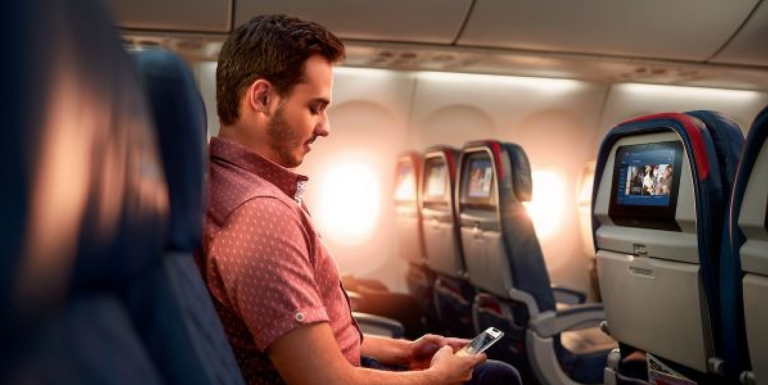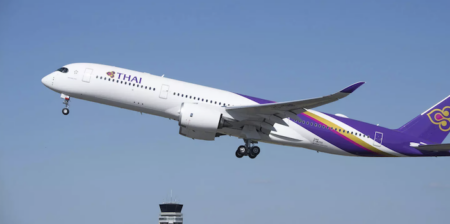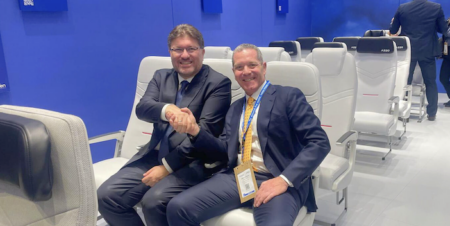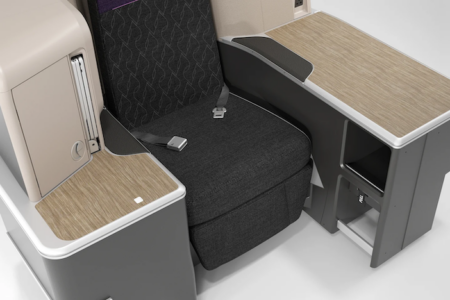Delta Air Lines is taking steps to help customers and employees practice social distancing on the ground and in the air, in keeping with current health-expert recommendations to keep people safe during the Covid-19 pandemic.
Starting 13 April through 31 May, several temporary changes will go into effect to promote a safe flying experience. For the onboard experience, the biggest change will be that the middle seats will be blocked in Main Cabin, Delta Comfort+ and Delta Premium Select across all flights. When customer book seat selections via the Fly Delta App or online, the middle seats will be shown as unavailable. Naturally, the airline will also reduce the number of customers that can book tickets for each flight.
Customers who want to practice social distancing can explore their options via the Fly Delta App or at delta.com. Customers who prefer to be seated directly next to travel companions and family members or needing additional assistance should contact Delta’s reservations team ahead of travel or talk to a Delta agent upon arriving at the gate.
In further measures, Delta is pausing its automatic, advance Medallion Complimentary Upgrades. These upgrades will now be processed at the gate – still in priority order – to allow gate agents to determine how to best seat customers, considering social distancing and aircraft weight-and-balance restrictions.
Delta staff have also taken several steps over the last few weeks to help customers practice social distancing, such as streamlining food and beverage service on board all domestic US and international flights to decrease touchpoints between customers and crew.
Crew are also boarding customers 10 at a time, reminding them to allow extra space as they board, and working with customers to find a new seat within their cabin, if needed and as space allows.
Once the aircraft reaches 10,000ft, crew can also passengers find a new seat if desired, while complying with weight-and-balance restrictions. Customers will need to be seated within the same class of service and within three rows (in front or behind) of their assigned seat.
Should customers not wish to take up their booked travel, Delta is extending their ability to plan, re-book and travel for up to two years.
In order to protect its crew, Delta is offering paid protection for employees who meet the CDC’s criteria of being at higher risk for severe illness so they can stay home from work without worry. The airline is also encouraging employees without operational-critical roles to work from home.
If they are at work, Delta staff are encouraged to wear a personal cloth face covering or mask, in accordance with CDC recommendations. Face masks are provided for employees interacting with ill customers, sourced from companies that will not impact the critical needs of healthcare workers. The Airport Customer Service team will be provided with protective gloves and masks.
For crew on board aircraft, the airline is temporarily blocking seats around the jump seats, where flight attendants are often seated, to allow additional distance between crew members. This is in addition to seating crew members in the cabin to allow for social distancing on transoceanic flights and where jump seats are located side-by-side on select aircraft, effective by 15 April.
The cabin environment will be clean too, with electrostatic spraying – or ‘fogging’ – applied across the aircraft fleet to administer a safe, high-grade, EPA-registered disinfectant that is highly effective against many communicable diseases, including coronaviruses. Sanitizing wipes and gloves will also be available to crew on board, and the flight decks will be cleaned daily as part of an enhanced flight deck cleaning programme.
Fogging will also be applied at all of Delta’s Reservations & Customer Engagement Centers by 11th April, and hand sanitiser will be provided in work stations and lounges. Delta is also expanding temperature screenings to locations across its system to protect employees in Delta workplaces.
For the Delta TechOps teams, new workstations have been developed to help people in operationally critical roles practice social distancing, while specific airport areas have been assigned to limit social contact and help avoid meetings in jet bridges and other areas where people gather.





